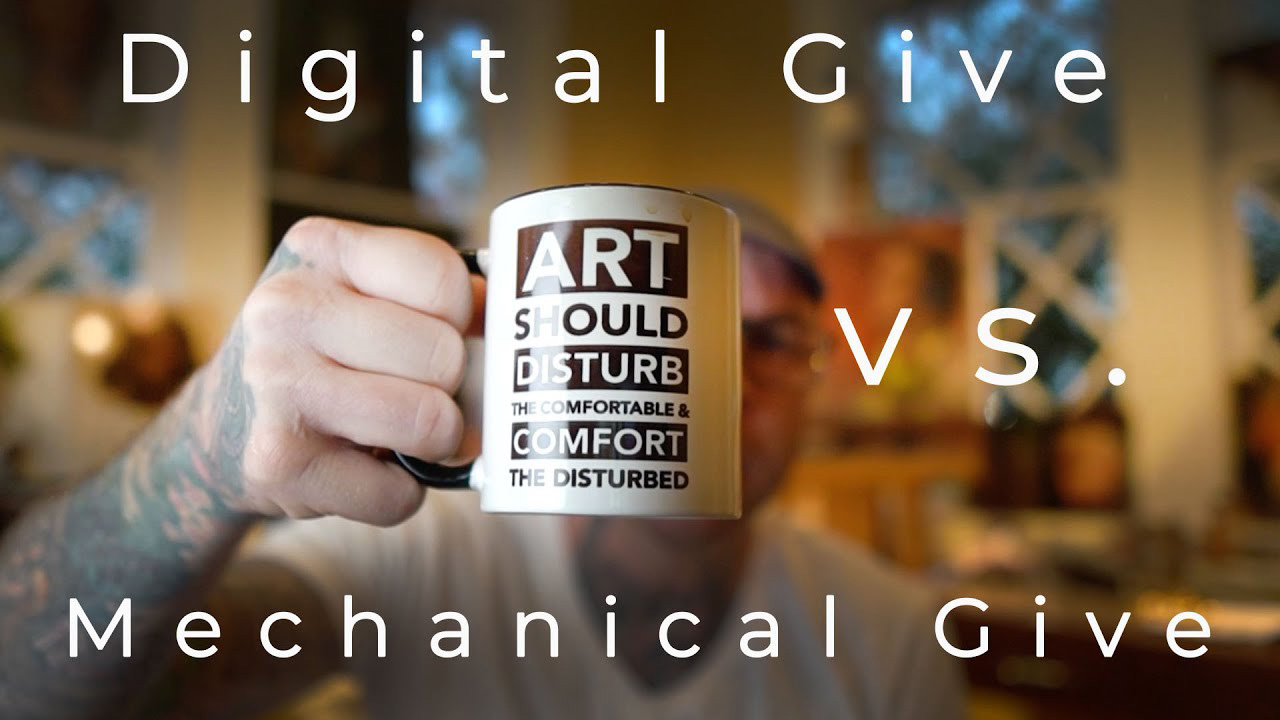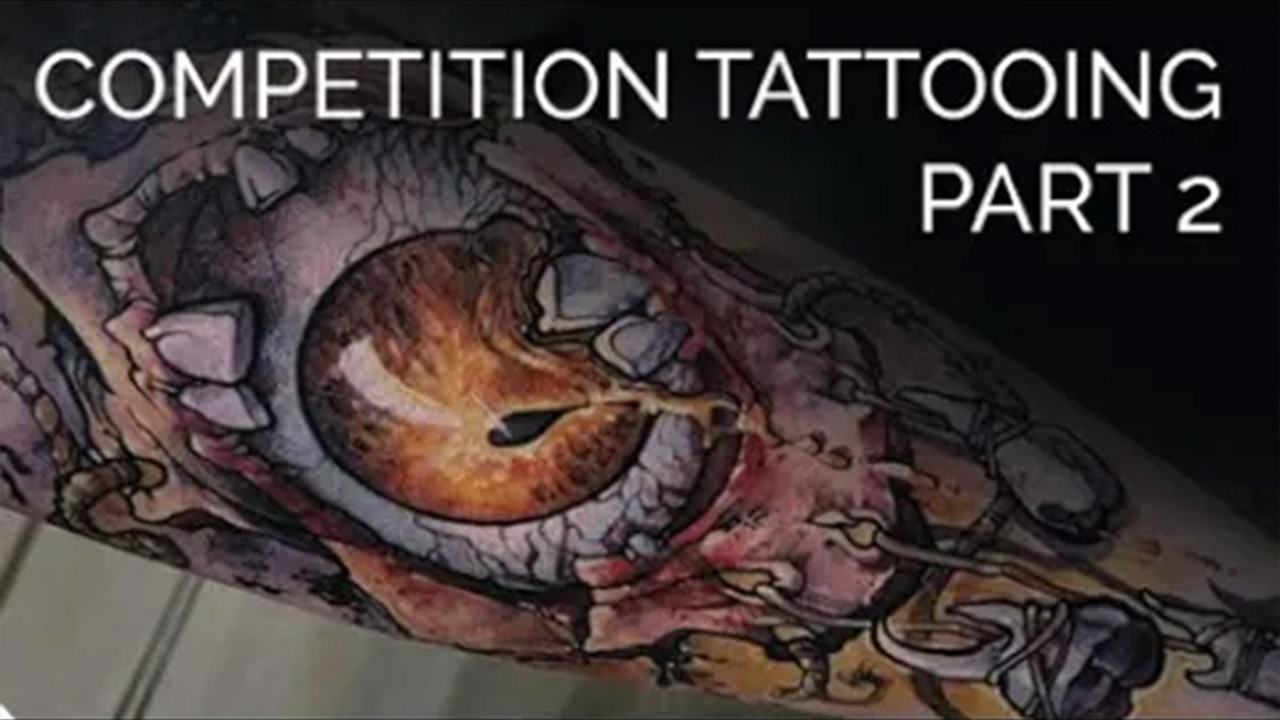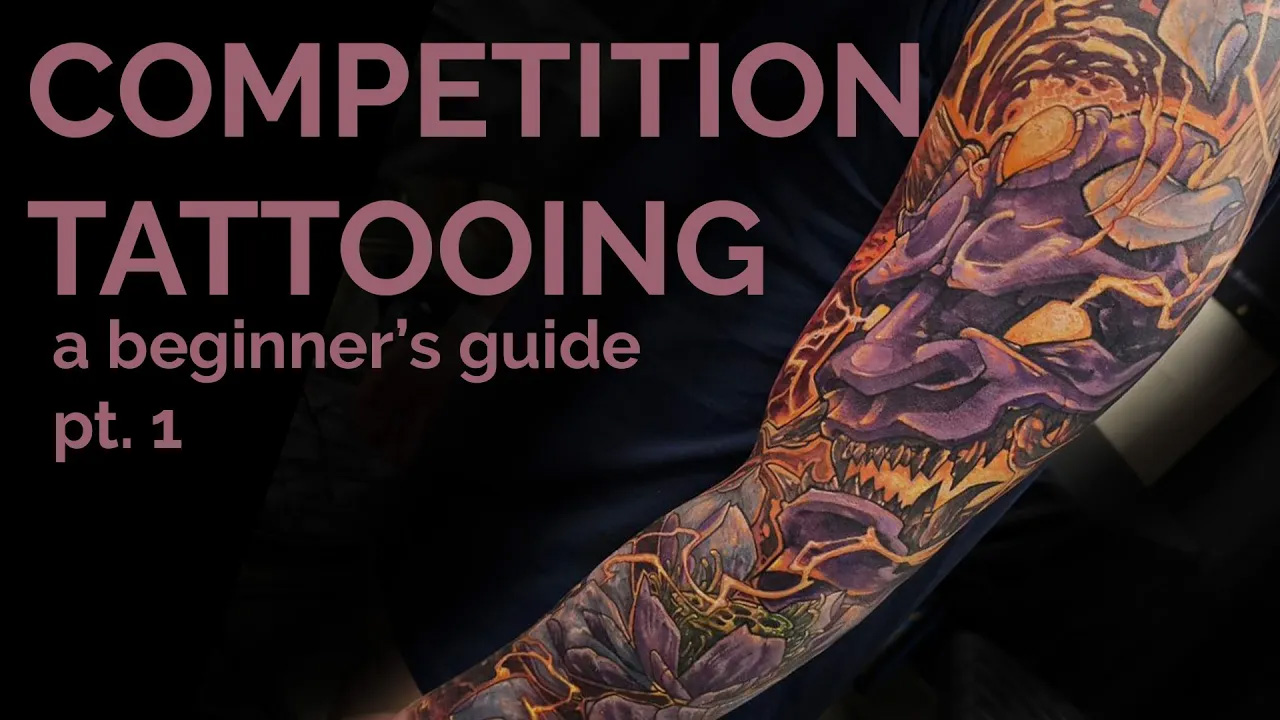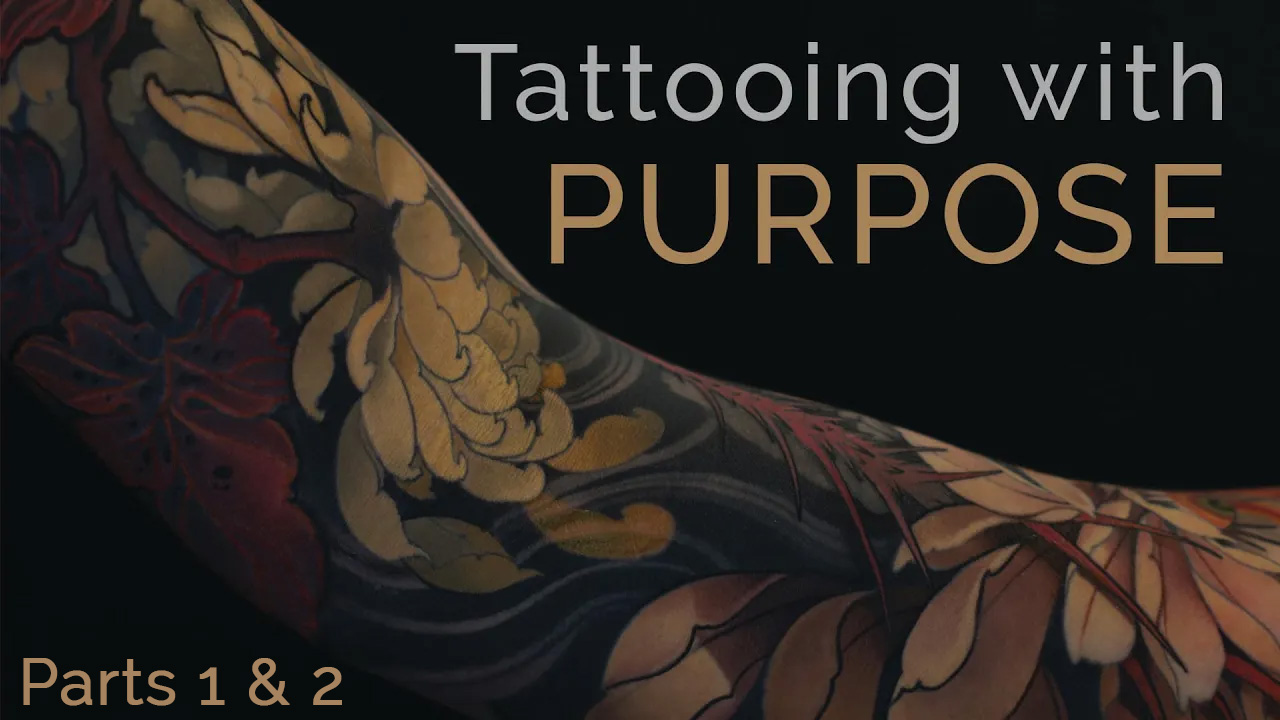Business and Mindset: Controlling the Consultation Tattoo Business Mindset
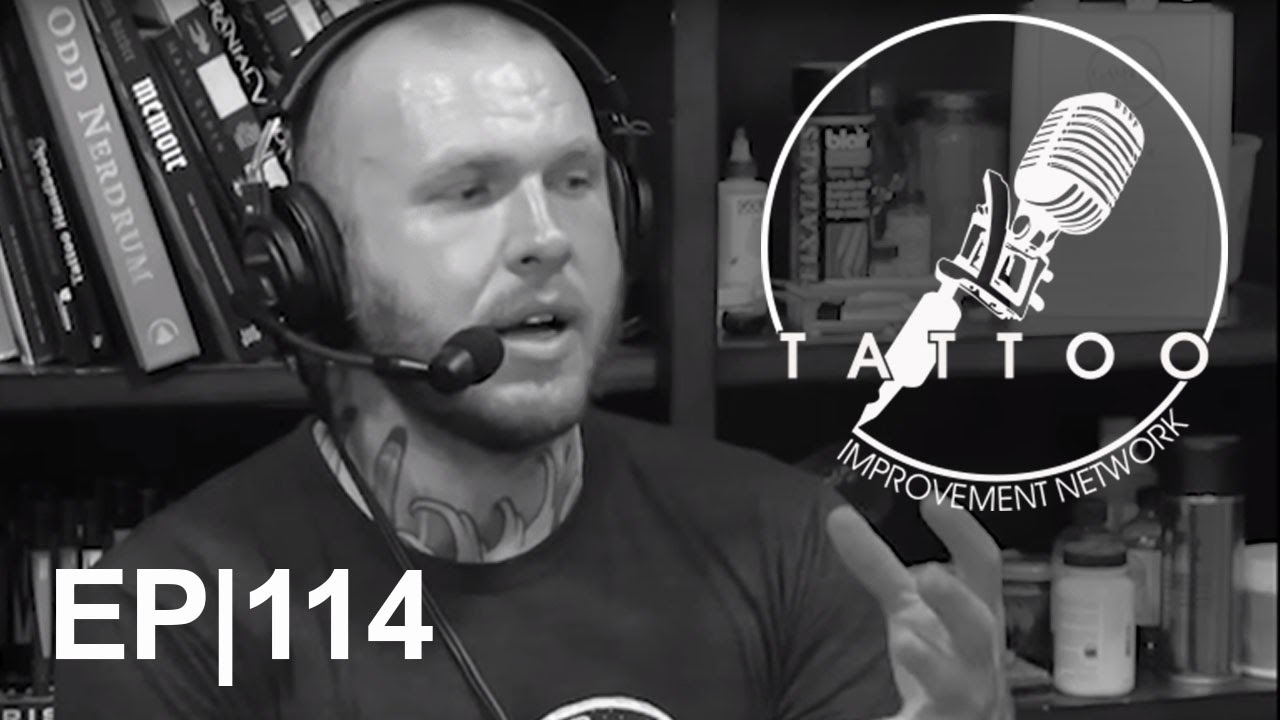
Controlling the Consultation
| Tattoo Business Mindset | EP 114
This episode was made possible thanks to:
Video By Jake Meeks —
Writing by Daniel Pushcarich -
Topics: Tattoo, tattoo business, tattoo business plan, tattoo shop mindset, Creativity, symbolism in tattooing, tattoo education, figure drawing, life drawing, educating tattoo clients
Proposing a Solution for Creative Control
I'd like to begin this article by expressing my gratitude for clients. They are the people who help pay our bills as artists, and we really couldn't do what we love without them. Clients invest their time and money into us, and I think that deserves some recognition.
Although clients are sometimes difficult, there are ways to get them to trust your creative vision for their tattoo. Oftentimes, clients have a specific image in mind that they're reluctant to let go of. However, this can disrupt the potential for an amazing tattoo. In this article, we'll discuss how you can persuade your clientele to give up some (or all) control and allow you to do what you do best--create beautiful art!
The Most Common Problem
Some clients know exactly what they want and make it easy for us. They come in, point at the wall, and sit down in the chair. However, other clients are more difficult because we have to take time to craft something specifically for them. These clients usually come with an idea or references of what they like and a general idea to work with, and these are what some tattooers would call the ideal client. But that's not who we're talking about here today.
The client’s that come in with a folder or a three ring binder and a stapled packet of back story of what’s supposed to go in their tattoo, that’s what we’re here to discuss…not to say that it isn’t thoughtful that they did all this legwork, but it can really make a mess of an idea sometimes. DON’T WORRY!! It doesn’t have to be disastrous because there are ways to really reign in that heap of ideas and sift through to find those gold nuggets.
They Don’t Draw, That’s Your Job
“Your clients are doing everything within their power, unintentionally, to keep you from finding your style or developing one…”
-Jake Meeks
When a customer approaches you with an idea, more often than not it isn't complete. Rather, they'll express to you a feeling, or recollection of an event, or a bunch of “things” that mean this one “thing” to them. It's up to you to determine what that means and how it can be depicted visually.
“When they show up with an idea they’re
not making decisions based on a solid art fundamental mindset.”
-Jake Meeks
Aim to build rapport during the consultation, as this is one of the best ways to ensure your client feels comfortable. By asking pointed questions or reframing the situation you can show that you're engaged and listening, which will instill confidence in your potential client. This will demonstrate that you're on their team and invested in finding the best solution for them.
For example: “Wow, thanks for bringing in all this reference, this is really great material to BUILD OFF OF”, or “What inspired you to come and get a consultation for this design?”
Establishing trust is key when working with clients. By showing that you're present and interested in what they have to say, it will prevent them from feeling discouraged or defensive about their ideas. And, framing the situation is super important for creating that environment.
Narrowing The Client’s Focus
“The first thing that I ask is: If you could only have one of these things in this tattoo, what would it be?”
-Jake Meeks
"Cornucopia Tattoos" and "Memorial Tattoos" are both design concepts that you want to avoid. If a client comes to you with twelve images or pieces of reference material, and they start describing a complex design with many different elements; “and it’s got gears and light bulbs and a beehive and a t-rex smoking a salmon and…..”, it is likely best to steer them in another direction. These types of tattoos are often disasterous projects that end up being regretted by all parties involved.
Right from the start, you want to get them thinking more about what their tattoo is supposed to SYMBOLIZE for them instead of worrying so much about how it will APPEAR to other people. A great way to do this is by asking a simple question: “If you could only have one element in this tattoo, what would it be?” By doing this, you're not getting rid of all their ideas at once--you're helping them focus on identifying the most important aspects of the design, or "Finding the Star of the Composition."
The Client’s Perspective
The Client’s Perspective
“They Feel like they have to have an idea…something they can give you”
-Jake Meeks
It's easy to forget how it felt getting our first tattoos- Intimidating. It can be nerve-wracking walking into a shop full of people who seem really tough, and thinking that nobody is going to want to listen to you or that you're going to screw something up. Although a lot has changed in recent years and the environment and culture around tattooing has changed a lot for the better, the first time can still be tough.
It can be difficult to understand why your client feels the need to explain their idea so thoroughly, but try and see it from their perspective; they want to make sure that you have a clear understanding of what they are looking for. Oftentimes, requesting too much detail can feel like a benefit because it FEELS like the artist has more direction.
Make Sure You’re Asking Questions
If your first question, "What's the most important element of the tattoo?", doesn't immediately receive an answer, that's okay. You can gently push or press for one by mentioning something like: "We have to find a focal point in this design--a shape, idea, or element to draw attention. Everything else is just support material." Doing so gives some stern direction while still allowing the client to understand you're trying to work WITH them.
If the client isn't able to think of an answer right away you can tell them, "Let's revisit this in a week." This gives them some time to mull it over and figure out what is truly important to them. More often than not, they just needed a little guidance and they'll come back with a satisfactory response.
Now if they do come back with something substantial there are some questions you should always ask yourself: can this be a focal point, does it inspire me, am I able to visualize it? Sometimes, right off the bat, it will be clear. Other times, what they've returned with won't work. Just because they came up with something doesn't mean you're obligated to use it. If you don't think you can be creative with their ideas for the tattoo, then chances are good that your relationship with them as a client will become strained and stressful.
Sharing Is Caring
“As long as you’re thinking out loud and sharing your process…You’ll find that people are really open to that”
-Jake Meeks
Being open and honest with your clients about how you work and what they can expect from you often has a positive effect on their experience. When an idea doesn't quite fit with what they're looking for, have a discussion with them; this not only fosters transparency, but can also help spark other creative ideas for the project.
If you listen carefully and take a genuine interest in your client's ideas, they will be more likely to value and consider your own input. Your clients just want their tattoos to look great-- show them that you're the expert who can make that happen, and you'll reap the rewards later.
The Client Isn’t Thinking Abstractly
“It doesn’t matter that everyone knows exactly what your tattoo says or means…the second that they see it”
-Jake Meeks
Many clients have trouble thinking abstractly about design, which is why it's important to educate them on the power of symbolism. Showing your client how a few well-chosen elements can be more evocative than a jumble of tiny details will help you get the best results for your project. This kind of goes back to that “Cornucopia Tattoo”; Get this Idea out of their brain as quickly as possible.
Too many elements in a tattoo design can restrict your creativity and leave you with a unhappy client. A good tattoo should be representational and meaningful - not just something people can read like a billboard. An attractive, well-designed Tattoo will make curious onlookers want to come over and ask questions about it.
Furthermore, if the other elements are crucial to the client, why not take advantage of future opportunities and work with them again? You can effortlessly demonstrate to them that most of their ideas just need their own space before they come together.
Keeping The End In Mind
“You’re really gonna struggle to build a business if you’re bending to everyone’s will, so don’t be afraid to turn something down.”
-Jake Meeks
When you're in the middle of an ineffective or challenging consultation, you'll eventually have to make a choice. But first, think about what outcome you want and consider the potential consequences. It's not always worth adding something to your portfolio just for money - remember that even if you don't post it on social media or take pictures of it, that piece is still a living, breathing, walking, and TALKING ad campaign. So be good to your clients! They represent a significant portion of your success.
All the artistic or creative decisions you make as a tattooer should be representations of where you want to be in the future. All tattoos leaving your shop should be decisions made to walk down a road towards your future destination. So, don't let one bad experience with a less than stellar tattoo ruin that for you; it happens occasionally to even the best of us. And actually, sometimes clients might appreciate your honesty and come back later with an improved idea and mindset.
Know That You’re The Expert
Do The Work To Be One
“The reason I control my clientele, and the tattoos I take on…is because I work my ass of to be a good artist”
-Jake Meeks
If you're an artist, taking on custom work, it's important that you constantly and consistently strive to be the best artist possible. After all, your clients are trusting in your ability to bring their ideas to life through your tattoo design. The better communicator and draftsman you are, the more confidence they will have in choosing you for the task.
Skill and Communication = Client Confidence:
- Confidence that you are listening and understanding them
- Confidence they can let go and give you creative freedom
- Confidence when they won’t see the design until the day of the appointment
You need to put in the work, because skill and communication will be your biggest assets in guaranteeing exceptional work will leave your shop and help build your career.
“In committing to artistic growth, you have to refine your skills to support your instincts.”
-Linda Ronstadt, quoted in Turning Pro by Steven Pressfield
Okay, so what does that look like? How do you make sure that you’re building the skills that you need? What does it actually take to become a better artist and creative communicator?
Draw as much as you possibly can, you need to make time to do it.
- Draw from life as much as you can
- Take in-person figure drawing
- Take online courses for drawing and painting (not just tattooing),
- Read art books from great artists
- LEARN THE FUNDAMENTALS OF ART
- Surround yourself with other great artists and don’t be afraid to ask them questions.
If you don’t try to learn you’ll be stuck in the same mediocre space doing the same mediocre tattoos.
You need to gain knowledge and experience and skill in order to design and create the tattoos you see in your head. Once you do that you’ll be surprised how quickly communication can follow behind, but you should make an effort early on to be a great communicator.
Whenever you learn something new, make it a point to show it to another artist or individual. Really try to understand how other people are receiving the information you're telling them, and be clear and concise when speaking. The more you try showing someone "if we do it this way it'll really benefit the design," the stronger your own knowledge becomes. After all, "to teach is to learn twice."
Building Your Skills Gains client Confidence
“Focus on your weaknesses, make them stronger, learn to verbalize it. People will respect you for it and they’ll trust you completely”
-Jake Meeks
A great tattoo artist will always attract loyal and supportive clients. The only way to become a great artist is by continual self-improvement in your skills, communication, and work ethic. The clientele you have will appreciate it and you’ll only benefit. If you want your clients to get the tattoos that you want to do then you have to do the work.
In Sum
So, to kind of wrap it all up, what are some key takeaways from this?
- Listen and engage - Show the client that you’re interested in their idea, have a conversation and ask them questions.
- Find ways to reign in the consultation - ask those questions on the front end so you can guide your clients to the tattoos you want to do.
- Educate the client - Be open about your process and show them how a tattoo should flow on the body, or tell them why one element will work over another.
- Don’t be afraid to say no! - Make sure that it IS a tattoo that you want to do, and if you don’t feel inspired or that it’s right for you, be confident and let that client know that it just doesn’t feel like a good fit.
- Do the work to be an expert- build your skills and your communication to let that client know they can be confident in letting go and letting you handle the design.
Thanks, we hope this was helpful!
By reading this, you've taken the initiative to improve your skills and deepen your understanding of your craft. If you want to go above and beyond in your tattooing, we recommend taking one (or more!) of our courses below:
Want more tattoo education and resources?
Check out our Tattoo Business and Mindset catalog HERE!
Transcript for this video can be found (here). All transcripts can be found (Here)
(Update when transcript page is made)
The Fireside Tattoo Network is home to the Fireside podcast, Fireside Technique video series and our Fireside Weekly blog.
The Fireside Tattoo podcast is hosted by veteran tattooer Jake Meeks, check out our episodes where we discuss, argue and wax philosophical, from tips for all levels of artists to trends in the tattoo world. Many guest artists have sat down for interviews and in-depth conversations and many more are planned…check back often!
Our Fireside Tattoo Overview video series offers informative, short, and detailed videos geared towards helping artists understand the science and nuances of tattoos and make more informed decisions to improve their work. We often take some of our more technical topics from our Fireside podcast and film an in-depth, narrated, time-lapse video showing exactly how Jake or our featured artists handle certain issues.
Support us while buying the stuff you need at the links below!
- Get 10% off the Neuma 4 with code “Fireside” at checkout
https://neumatattoo.com
- Get 10 % off all S8 Tattoo products with promo code “Fireside”
https://s8tattoo.com/
- TattooNOW Website and Automation services at the link below
https://TattooNOW.com/Fireside
- Get 10% off your order from Raw Pigments with code “fireside”
https://rawpigments.co/
So, to kind of wrap it all up, what are some key takeaways from this?
- Listen and engage - Show the client that you’re interested in their idea, have a conversation and ask them questions.
- Find ways to reign in the consultation - ask those questions on the front end so you can guide your clients to the tattoos you want to do.
- Educate the client - Be open about your process and show them how a tattoo should flow on the body, or tell them why one element will work over another.
- Don’t be afraid to say no! - Make sure that it IS a tattoo that you want to do, and if you don’t feel inspired or that it’s right for you, be confident and let that client know that it just doesn’t feel like a good fit.
- Do the work to be an expert- build your skills and your communication to let that client know they can be confident in letting go and letting you handle the design.
Thanks, we hope this was helpful!
By reading this, you've taken the initiative to improve your skills and deepen your understanding of your craft. If you want to go above and beyond in your tattooing, we recommend taking one (or more!) of our courses below:
Want more tattoo education and resources?
Check out our Tattoo Business and Mindset catalog HERE!
Transcript for this video can be found (here). All transcripts can be found (Here)
(Update when transcript page is made)
The Fireside Tattoo Network is home to the Fireside podcast, Fireside Technique video series and our Fireside Weekly blog.
The Fireside Tattoo podcast is hosted by veteran tattooer Jake Meeks, check out our episodes where we discuss, argue and wax philosophical, from tips for all levels of artists to trends in the tattoo world. Many guest artists have sat down for interviews and in-depth conversations and many more are planned…check back often!
Our Fireside Tattoo Overview video series offers informative, short, and detailed videos geared towards helping artists understand the science and nuances of tattoos and make more informed decisions to improve their work. We often take some of our more technical topics from our Fireside podcast and film an in-depth, narrated, time-lapse video showing exactly how Jake or our featured artists handle certain issues.
Support us while buying the stuff you need at the links below!
- Get 10% off the Neuma 4 with code “Fireside” at checkout
https://neumatattoo.com - Get 10 % off all S8 Tattoo products with promo code “Fireside”
https://s8tattoo.com/ - TattooNOW Website and Automation services at the link below
https://TattooNOW.com/Fireside - Get 10% off your order from Raw Pigments with code “fireside”
https://rawpigments.co/
Business and Mindset
Running a tattoo business requires a completely different skill set than putting tattoos into skin. As tattooers, we tend to put all of our emphasis on the technical aspects of tattooing. Unfortunately for shop owners and tattoo entrepreneurs, tattooing is only one small piece of the puzzle when it comes to the business of tattooing.
Fireside is here to help:
- Tricks for ordering supplies for your crew
- Creating goals for your shop
- Upholding tattoo shop values
We also have plenty of Business and Mindset Deep Dive content to help you avoid the most common pitfalls of shop owners.
Check these pages out
Stuck in a rut? Successful but looking for the next challenge?
Recent News
Inside Fireside: Mentality, Pain Management, and the Art of Client Care with Kurt Jacobson
- 09/06/24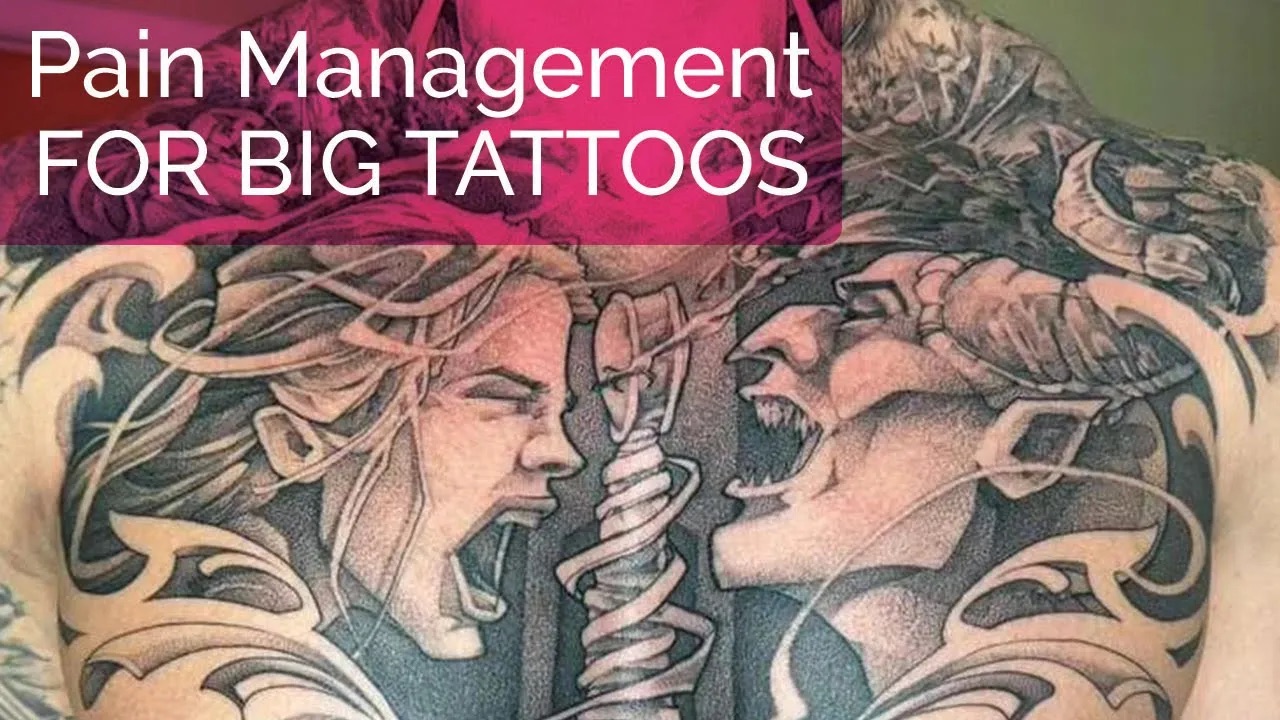
Why Do We Care About Give? - Carson Hill
- 07/24/24